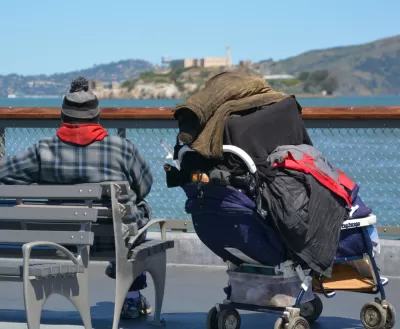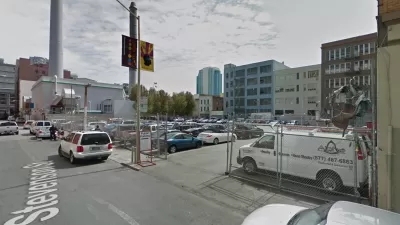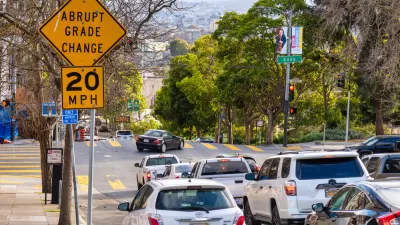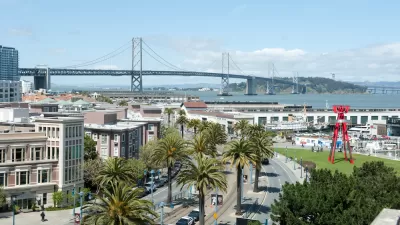A group called Safe Embarcadero for All is suing to block the construction of a homeless shelter on city-leased land across from piers 30-32 on the San Francisco waterfront.

"Opponents of a 200-bed Navigation Center planned for the Embarcadero filed a lawsuit against the project Wednesday in an attempt to stop the city from building the homeless shelter in their neighborhood," reports Trisha Thadani.
"Last month, the group was unsuccessful in trying to persuade the supervisors to overturn a unanimous April decision by the San Francisco Port Commission to grant the city a two-year lease on its 2.3-acre parcel across from Piers 30-32," according to Thadani.
This month, a lawsuit, which makes arguments similar to the appeal: "that the city failed to get the necessary approvals from the State Lands Commission, the agency that oversees waterfront development. It also argues that the city did not go through a proper environmental and design review and seeks a restraining order to halt the development from progressing until the lawsuit is decided."
A spokesperson for the city is quoted in the article saying the city followed all applicable land use laws when approving the navigation center, also implying that the opposition group is a "not in my back yard" (NIMBY) organization.
FULL STORY: Residents file lawsuit against Embarcadero Navigation Center

Alabama: Trump Terminates Settlements for Black Communities Harmed By Raw Sewage
Trump deemed the landmark civil rights agreement “illegal DEI and environmental justice policy.”

Planetizen Federal Action Tracker
A weekly monitor of how Trump’s orders and actions are impacting planners and planning in America.

The 120 Year Old Tiny Home Villages That Sheltered San Francisco’s Earthquake Refugees
More than a century ago, San Francisco mobilized to house thousands of residents displaced by the 1906 earthquake. Could their strategy offer a model for the present?

LA’s Tree Emergency Goes Beyond Vandalism
After a vandal destroyed dozens of downtown LA trees, Mayor Karen Bass vowed to replace them. Days later, she slashed the city’s tree budget.

Sacramento Leads Nation With Bus-Mounted Bike Lane Enforcement Cameras
The city is the first to use its bus-mounted traffic enforcement system to cite drivers who park or drive in bike lanes.

Seattle Voters Approve Social Housing Referendum
Voters approved a corporate tax to fund the city’s housing authority despite an opposition campaign funded by Amazon and Microsoft.
Urban Design for Planners 1: Software Tools
This six-course series explores essential urban design concepts using open source software and equips planners with the tools they need to participate fully in the urban design process.
Planning for Universal Design
Learn the tools for implementing Universal Design in planning regulations.
Ada County Highway District
Clanton & Associates, Inc.
Jessamine County Fiscal Court
Institute for Housing and Urban Development Studies (IHS)
City of Grandview
Harvard GSD Executive Education
Toledo-Lucas County Plan Commissions
Salt Lake City
NYU Wagner Graduate School of Public Service





























